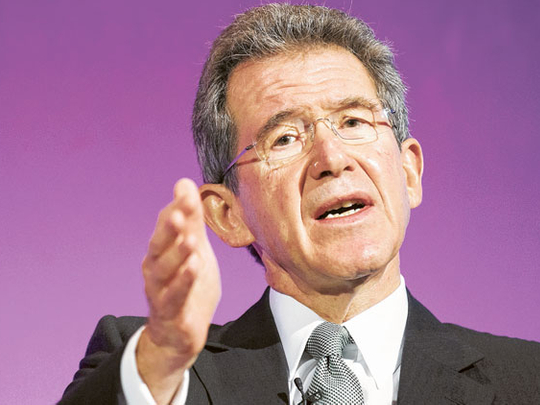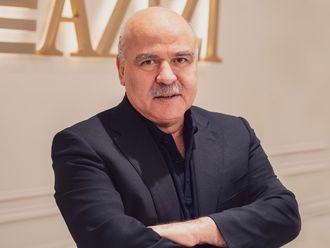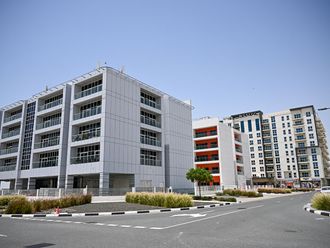
London: After a contentious year that saw his student fees report lead to widespread protests, former oil boss Lord Browne is said to be considering buying BP assets.
It was somehow fitting that less than 48 hours after a lunar eclipse, stock market watchers in London were predicting a second coming for the man once dubbed the Sun King.
Lord Browne, given the royal epithet by an adoring business newspaper some years ago, is said to be "circling assets" being auctioned off by BP, the company where he made his reputation and then almost lost it.
An approach to BP is said to have already been made through Riverstone Holdings, the private equity house which Browne now calls home.
And if he does make a successful bid for parts of the oil company, it would be seen as an unexpected return for an oilman who has only made headlines in the financial press recently through his promotion and advocacy of green power.
But it would also cap off an extraordinary year during which his report into student fees became a catalyst for the biggest popular demonstrations seen since the poll tax riots.
The former BP man has been at the centre of rows over government moves to draft in business leaders to shake up the civil service and make it more efficient.
Among the BP interests that Riverstone is said to be looking at are $2bn (Dh7.3 billion) of natural gas liquids processing facilities in Canada that have been put up for sale in recent weeks.
Riverstone, which is one of the largest specialist energy investment firms, is understood to be particularly interested in infrastructure and pipeline assets that BP has earmarked for disposal.
Riverstone is reported to have expressed its interest in acquiring assets from BP and has also been exploring an offer for Nigerian oil fields that have been put up for sale by BP's rival, Shell.
Browne was unavailable for comment but friends said the former oil boss was particularly keen on gas, as an intermediate fuel between carbon-heavy oil and greener power such as wind and solar.
Fadel Gheit, veteran oil analyst with Oppenheimer Company brokerage in New York, said the idea of Browne and Riverstone making a potential bid for BP assets "makes a lot of sense". No one would know those operations better than Browne, added Gheit.
Lord Browne ennobled in 2001 has always caused a bit of a stir. His enjoyment of a grand gesture combined with a sharp commercial eye turned a middleweight British oil group into a global titan that was once seen as the only true rival to ExxonMobil.
As chief executive of BP, Browne masterminded a series of audacious takeovers of American companies such as Amoco and Arco that created the first of what analysts now call the SuperMajors.
Exxon immediately responded by forming its own merger with Mobil, while Total bought Elf Aquitaine and Conoco purchased Phillips Petroleum in an attempt to keep up.
But it was not long before the Cambridge-trained engineer set the pace again.
The Sun King was off to see the oil czars in Russia and soon tied up a venture with TNK.
Soon after that Browne, having been awarded industrialist of the year several times in a row, announced plans to take BP Beyond Petroleum, rebranding the oil group in 2001 as an energy group that would in future move towards renewable energy and clean technology.
The explosion at the Texas City oil refinery and the deaths of 15 workers in four years challenged the business model of the BP boss.
Larger focus
Critics began to argue that Browne was so focused on the larger global issues that he had taken his eye off the smaller operational details that were essential in such a potentially dangerous industry.
The refinery fire also looked worse because it came on the back of pipeline fractures in Canada, damage to a drilling platform in the Gulf of Mexico and proplyene trading "irregularities" in the US.
Browne fell out with his chairman, Peter Sutherland, over his desire to stay on beyond the corporate norm of aged 60, but his final exit came after he admitted lying to the high court in London in an attempt to protect his private life.
Since those difficult days in the spring of 2007, Browne has made a comeback, joining Riverstone as a managing director for the European side of the business and speaking at an increasing array of conferences, usually on the prospects for clean technology.
But this year could have been a difficult one. The blowout of a BP well in the Gulf of Mexico and the ensuing environmental disaster has led to the sacking of Browne's successor, Tony Hayward, and a huge fall in the share price.
Some critics have questioned whether the rot seen in BP's offshore drilling practices were part of a wider decay that was witnessed at Texas City and could be attributed to Browne.
The peer has understandably kept his own counsel on this issue, as he was doing again last night on whether he now saw opportunities from assets being sold by BP to meet the multi-billion pound costs of the damage caused by the Deepwater Horizon explosion.
Fadel Gheit believed a move on BP assets would suggest Browne was betting on something that would affect all of us in future: higher oil and gas prices. You do not have to be a sky-gazer to predict that.












